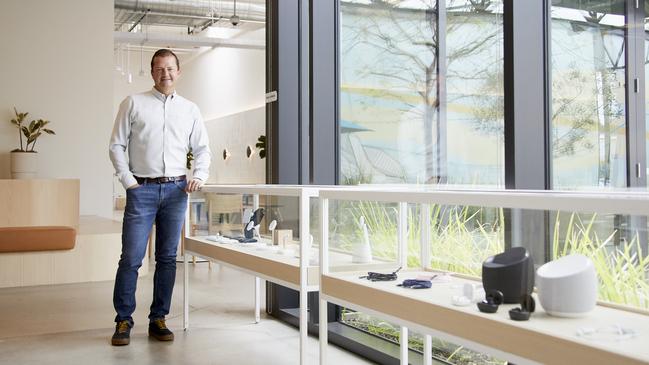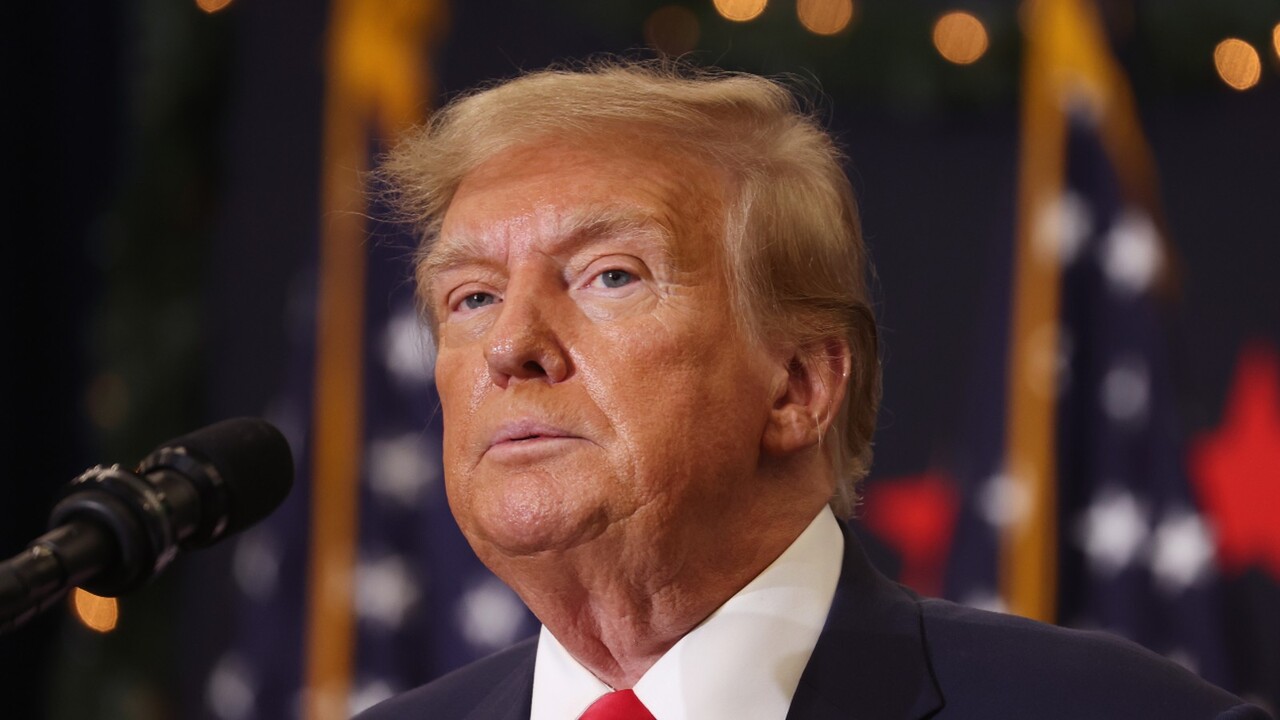US and Australian companies warn of consequences of Trump’s looming China trade war
Belkin boss Steve Malony has ‘a lot of questions’ about what Donald Trump’s plan to impose tariffs on foreign tech hardware will mean for supply chains and manufacturing in the US.

Belkin chief executive Steve Malony has “a lot of questions” about what Donald Trump’s plan to impose tariffs on foreign tech hardware will mean for supply chains and manufacturing in the US, saying it will take a while to find the answers.
The smartphone and electronics accessory maker is based in California but manufactures most of its products overseas, with Mr Malony saying US manufacturing “is not as cost competitive as we would like it to be”.
As part of Mr Trump’s Make America Great Again pledge, he has vowed to impose 60 per cent tariffs on Chinese-made goods, and a sweeping 10 per cent across-the-board tariff on all US imports.
Prominent Australian business leaders, including Wesfarmers chair Michael Chaney, have warned that Mr Trump’s proposal risks sparking a fierce trade war with China, stoking inflationary pressures around the world and slowing the Federal Reserve’s mooted rate-easing cycle.
“If president Trump enacts some of the policies he has been talking about, like imposing tariffs, it is likely to have an inflationary effect which would flow around the world,” Mr Chaney said.
Mr Malony said it would take “a little while to sift through” all of the commentary and rhetoric and “see how that translates into real actions”. In any case, he said Belkin would adapt to potential changes.

“We have a lot of questions around what that’s going to mean for tariffs and the supply chain and manufacturing in the US and all of those sorts of things. I don’t think we know the answers to those questions yet,” he told The Weekend Australian.
“The partners that we have from a manufacturing perspective are very cost competitive. We live in a cost-competitive world, so we need to make sure that we’re being really thoughtful about how we architect the supply chain, where we build our goods, and total supply chain costs.
“Right now, it’s not as cost effective as we would like it to be to manufacture in the US. That’s why we do pretty limited run manufacturing here, and very specialised stuff.”
Taiwan-based Foxconn Technology – Apple’s biggest iPhone supplier – bought Belkin for $US866m in early 2018.
Mr Malony said most of the Belkin’s “limited” US manufacturing was custom cables for data centres – but he said that could change, saying the company has adapted to past government policy changes.
“That could change over time, but we’ll have to see how it all goes. Right now, it’s going to be an evolving space for us. I don’t think that we know exactly how it’s going to change, especially under the political changes that we’re seeing now.
“We were able to make adaptations every time there’s been a political change that has impacted us.
“We’ll be keeping a keen eye and ear on it … watching it closely, trying to anticipate the ways that we need to adjust our business to be able to thrive in whatever sort of political climate that we’re dealing with. The US economy is doing well. I think the global economy still has a chance to succeed. We’ll see how this impacts it, either way, we’re ready.”

Shane Hill, principal research analyst at Australian tech advisory firm ADAPT, said while Mr Trump’s proposed tariffs might be good for US manufacturing, it will make US-made products more expensive. But he said Australia could partially insulate itself.
“It brings to the table concerns about the prices paid by Australian firms for technology imported from the United States, as well as the certainty of our tech supply chain,” Mr Hill said.
“Through the lens of our Future Made in Australia framework, we have an opportunity to make the most of this uncertainty by investing in our own capabilities around semiconductor fabrication, shoring up local supply should trade through the United States become strained.”
But the Future Made in Australia framework has attracted criticism after foreign companies have been granted funding while local businesses suffered job losses.
Last week manufacturer Jon Seeley lashed out at Anthony Albanese for providing $17m to a US-owned pet food company under the Future Made in Australia banner, saying his business, just a stone’s throw away, is not receiving taxpayer support while being hit by draconian industrial relations policies.
Mr Seeley watched on as the Prime Minister hailed the investment in Wodonga, just a short drive from his factory in Albury, which is set to cease operations because of the government’s workplace rules.






To join the conversation, please log in. Don't have an account? Register
Join the conversation, you are commenting as Logout